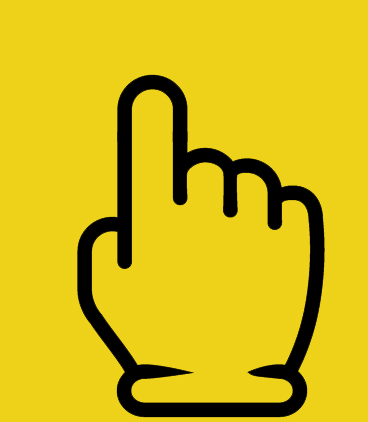
There is a hidden path paved with golden etiquette that leads aspirant applicants to the door of success in the enchanted world of job prospects, where dreams and ambition entwine. The art of professionalism transforms into your dependable guide as you embark on this mysterious trip, pointing the way across the perilous terrain of job interviews. Interview etiquette weaves its spell like a master sorcerer, converting anxiety into assurance and uncertainty into calm.
In this post, we will explore the mystic regions of behavior in the sacred interview room as well as across the ethereal landscapes of online interviews to reveal the secrets of handling job interviews with finesse and grace. As we explore the nuances of how to behave in a job interview, get ready to set out on a mission to learn how to enchant and fascinate interviewers with your immaculate demeanor.
So gather your wits, put on your virtual armor or clothing, and join me as we go through the enchanted world of interview etiquette, where professionalism rules supreme and success awaits those who dare to perfect their craft.
What is an Interview?
A crucial phase in the job application process is an interview, which is a formal dialogue or meeting. It often entails a conversation between a job candidate and an employer, represented by the hiring manager or a panel of interviewers. The employer assesses the applicant's credentials, abilities, experience, and general fit for the post during this conversation.
The main goal of an interview is to learn crucial details about a candidate that aren't covered on their résumé or application. It enables the employer to evaluate the candidate's skills, establish how well they would fit into the company's culture, and identify any possible contributions they might make to the position and the company as a whole.
Depending on the needs and interests of the employer, interviews can take many different forms. At the employer's site, in-person interviews provide a face-to-face setting that enables a more thorough evaluation of the applicant. When distance is an issue or for preliminary screenings, phone interviews offer a practical mode of connection. Between in-person and phone interviews, video interviews conducted through services like Skype or Zoom fill the gap by providing a visual component while preserving remote communication.
How Should You Behave In a Job Interview?
Your conduct in the interview space should convey professionalism and assurance. Make eye contact with the interviewer(s) and smile warmly as you enter the room to create a good first impression. The tone of a good interview is defined by your body language and demeanour, which should convey confidence.
During an interview, the ability to actively listen is crucial. By nodding and making eye contact with the interviewer, you can demonstrate your attention. Give them your whole attention and refrain from talking over them. You can make a lasting impression by showing respect and genuine interest in the conversation by attentively listening.
Presenting yourself in a cool, collected manner is essential to keeping a professional demeanour. Use polite language, speak clearly and concisely, and refrain from using slang or making improper comments. Avoid fidgeting or crossing your arms, which might convey discomfort or disinterest, and keep your body language open and interested. Keep your mood upbeat and eager throughout the interview.
During the interview, you must give your responses careful thought. Before reacting, pause to gather your thoughts. Answers should be succinct and pertinent and should showcase your abilities, successes, and experiences. Be sincere and genuine in your comments, but refrain from disclosing too much personal information that might not be pertinent to the interview. Striking a balance between highlighting your credentials and remaining professional is crucial.
You will have the chance to ask questions as the interview goes on. Asking serious questions about the business, the position, and the work environment in advance. You can show that you're interested in the job and engaged by asking pertinent questions. However, unless the interviewer specifically mentions it, refrain from bringing up compensation or benefits during the initial interview. Your inquiries should centre on learning more about the organisation and the position itself.
Thank the interviewer for their time and thoughtfulness when the interview is over. Reiterate your interest in the job and express gratitude for the chance to interview. The final politeness you extend demonstrates your professionalism and makes a good first impression. After the interview, don't forget to express your gratitude even more by sending a personalised thank-you message or email within 24-48 hours.
How To Behave In An Interview Online?
The same standards of conduct apply to online interviews as they do to in-person ones. Assuring a seamless technological setup is the first stage. Test your internet, audio, and video connections before the meeting and become familiar with the video conferencing software that will be utilized. This planning will lessen any technical issues and guarantee a smooth interview process.
Keeping a professional internet presence is essential while conducting an online interview. Remove any potential distractions before the interview and pick a place that is peaceful and well-lit. To show that you are serious and respectful of the process, dress professionally, just like you would for an in-person interview. Consider your background, choosing a clear, uncluttered area or, if accessible, using suitable virtual backgrounds.
Online interviews heavily rely on nonverbal cues. Keep your back straight and your posture professional to show that you are paying attention. Instead of focusing on your own image on the screen, keep eye contact by gazing directly into the camera. This shows that you are interested in the talk and builds rapport with the interviewer. Additionally, effectively use your gestures and facial expressions to support your remarks and convey real attention.
Keeping technical problems to a minimum is crucial for a successful online interview. Have a back-up plan in place in case there are any technological issues, such as a phone number or other ways of getting in touch with the interviewer. If technological difficulties occur, remain composed and polite, and express regret for any inconveniences. A positive impression on the interviewer can be made by handling such situations with dignity and professionalism.
After the online interview, it's important to follow up with appropriate communication. Send a thank-you email within 24-48 hours to express your gratitude for the opportunity to interview. Use this opportunity to recap key points discussed during the interview and reiterate your interest in the position. Personalize the email to show your genuine appreciation and highlight any specific aspects of the interview that resonated with you.
Conclusion On: How To Act During A Job Interview
We have discovered the keys to completing job interviews with grace and professionalism as we come to the end of our exploration into the world of interview etiquette. The art of interviewee behavior goes beyond simple formalities; it is a reflection of your moral character, honesty, and dedication to greatness.
You have learned the value of greeting and introductions, active listening, maintaining a professional demeanor, giving meaningful responses, and asking interesting questions by learning how to behave in an interview room. These actions demonstrate your suitability for the position and the company, making a good first impression on prospective employers.
Hope you liked this article on - How to behave in a Job interview. If you have any queries or questions, you can reach out at info@interview-expert.com. For more guidance on interview preparation, contact Interview Expert.

